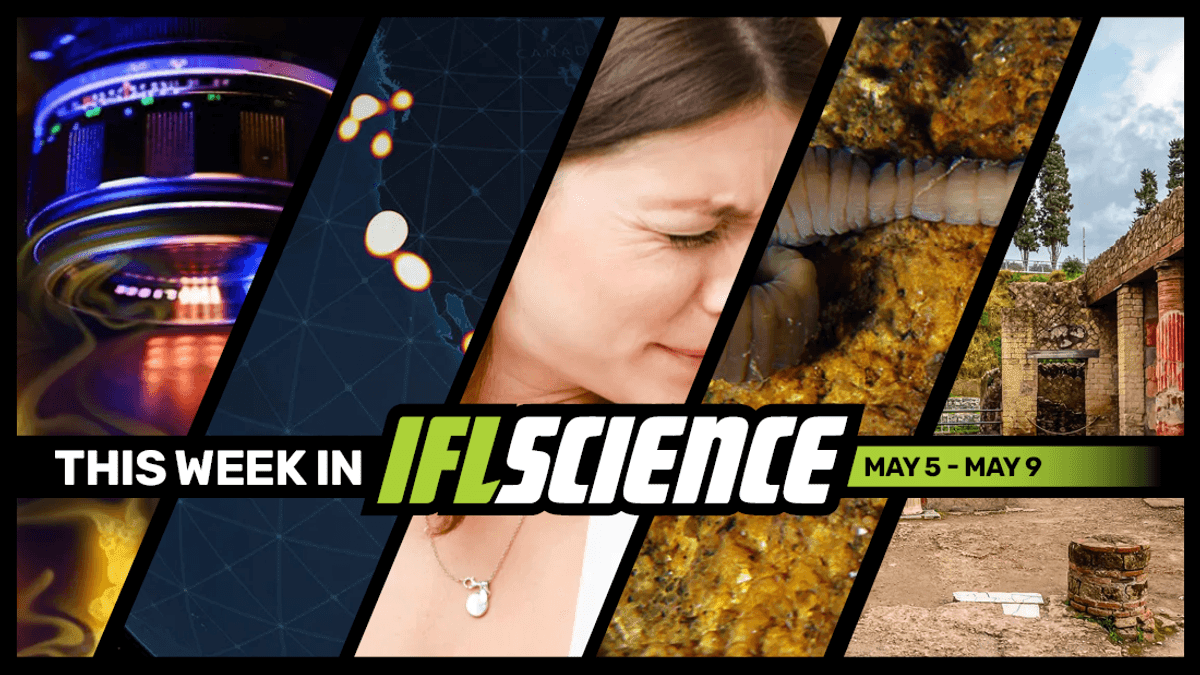First Ever Image Of “Free Floating” Atoms, The Nocebo Effect Beats The Placebo Effect When It Comes To Pain, And Much More This Week

This week, new research suggests 99.999 percent of the deep ocean has never been observed by humans, a new species of " accordion worm " can squish down to one-fifth of its original size, and the title of a burnt Herculaneum scroll has finally been identified after 2,000 years. Finally, we spoke to Liz Bonnin, presenter of the BBC's Our Changing Planet , about the largest dam removal project in the world and how it has affected the river and the local tribal communities.
Create an www.zxnox.comaccount to get all the biggest science news delivered straight to your inbox every Wednesday and Saturday.
First Ever Image Of "Free Floating" Atoms Snapped By MIT Scientists
Scientists now have a new approach to study never-before-seen quantum phenomena. Physicists from the Massachusetts Institute of Technology have produced the first images of atoms freely interacting in space, showing correlations that had been predicted in theory but never directly photographed before. Read the full story here
Just 0.001 Percent Of The Deep Ocean Has Been Directly Observed
Much of the ocean has never been mapped, and it is for this reason that projects like Seabed 2030 exist, to finally map every ocean. Just over a quarter of the oceans' floor has been mapped, which is small, but a significant increase from the 6 percent that it was in 2017. Still, there is an even more shocking number: new research suggests 99.999 percent of the deep ocean has never been observed by humans. Read the full story here
When It Comes To Pain, The Nocebo Effect Beats The Placebo Effect
The nocebo effect appears to work more strongly and more persistently than the placebo effect when it comes to pain, a new study has found. In other words, having negative expectations going into a painful experience means it will probably be worse than it would otherwise have been. This effect is more prominent than the opposite case, where having positive expectations relieves some of the pain. Read the full story here
New Species Of Incredible "Accordion Worm" Can Squish Down To One-Fifth Of Its Original Size
A new-to-science species of worm has just pulled out one hell of a party trick: it can squash up like an accordion to a staggering one-fifth of its normal body length. No news yet on whether the feat comes with an equally comical gasp of discordant notes, but a reminder that worms really are a talented bunch. Read the full story here
Title Of Ancient Burnt Herculaneum Scroll Identified For First Time In 2,000 Years
The Vesuvius Challenge has announced the latest award for the identification of the first title on one of the ancient Herculaneum scrolls. The title has been unread for nearly 2,000 years, ever since the volcano erupted in 79 CE, but now innovative noninvasive techniques have recovered it from the still-rolled scroll that would have otherwise been lost to time. Read the full story here
TWIS is published weekly on our Linkedin page, join us there for even more content.
Feature of the week:
Largest Dam Removal Project In The World Triggers Return Of Salmon After Years Of Campaigning
The largest dam removal project in US history, and likely the world, was completed at the end of last year, with the removal of four huge dams. But with the Klamath River now running free, the river's restoration is only just beginning. The project is featured in the new season of the BBC's Our Changing Planet , and we spoke to presenter Liz Bonnin about traveling to the US to discover more about the scale of the demolition and how the impact of the dams has affected the river and the tribal communities that live along the Klamath. Read the full story here
More content:
CURIOUS Live , www.zxnox.com's virtual event, is back for 2025! This time, we'll be discussing all things horror and neuroscience with Dr Austin Lim. Sign up for an All Access Membership today and receive free access to the event as one of the many perks of an All Access Membership.
Have you seen our e-magazine, CURIOUS ? Issue 34 May, 2025, is available now . This month we asked, "Why Do We Love Nostalgia?" – check it out for exclusive interviews, book excerpts, long reads, and more.
PLUS, the We Have Questions podcast – an audio version of our coveted CURIOUS e-magazine column – continues. In episode 8, we ask, " What Happens To Eyes During The Mummification Process? "
The Big Questions podcast returns next month for season 5. Catch up with all episodes from season 4 here .

Post a Comment for "First Ever Image Of “Free Floating” Atoms, The Nocebo Effect Beats The Placebo Effect When It Comes To Pain, And Much More This Week"